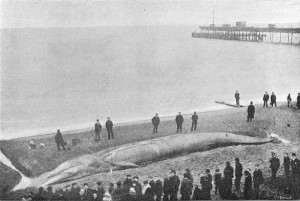 The deadline to submit your proposals for Festival of Learning 2017 is fast approaching, and we would like to remind you that you have only few more days to apply!
The deadline to submit your proposals for Festival of Learning 2017 is fast approaching, and we would like to remind you that you have only few more days to apply!
Planning your own public event can be a bit of a challenge when you try putting together an event that is interactive and lasts several hours, so how about a film screening followed by a short debate? We all love watching films…who does not like going to the cinema? Film screening is a fantastic way of showcasing your research and let’s be honest, planning it is not that complicated!
Fog of Sex: stories from the front line of student sex work
This event was a screening of an award winning docudrama that brings the real-life testimonies of students currently working within sex industry to the screen. The film was made as part of a pioneering new study called The Student Sex Work Project. The project has transformed understanding about the motivations and needs of student sex workers. The screening was followed by Q&A with criminologist Debbie Jones, who co-led the study, producer Chris Britten and clinical sexologist Sam Geuens.
You do not necessarily need to create your own film to be able to screen a film. Film screening can be an addition to your event that effectively illustrates your research by putting it into different perspective which can trigger some interesting discussion with the audience. As an example we would like to mention ‘The Shelley- Frankenstein legacy: Social science in history and today’ event which was part of ESRC Festival of Social Science 2016 at Bournemouth University. This event was in a form of a ‘question time’ style debate with a film screening that aimed to explore the feminism and sociology of the body from historical and contemporary perspectives. The film illustrated what had been discussed and helped people to gain a better understanding.

There is only one support session left so make sure to come and talk to us about your event idea
Thursday 1 December 8:30am-5pm Talbot Campus Drop In
Remember that the deadline for event submissions is 4pm on Friday 2 December
Find out more about how to apply Here.
If you have any questions about the global Festival of Learning, please contact the Global Engagement Hub: 01202 965112 globalbu@bournemouth.ac.uk
If you have any questions about the UK Festival of Learning, or difficulties using the online application form, please contact the Festival of Learning Team: 01202 961342 FoL@bournemouth.ac.uk













 Beyond Academia: Exploring Career Options for Early Career Researchers – Online Workshop
Beyond Academia: Exploring Career Options for Early Career Researchers – Online Workshop UKCGE Recognised Research Supervision Programme: Deadline Approaching
UKCGE Recognised Research Supervision Programme: Deadline Approaching SPROUT: From Sustainable Research to Sustainable Research Lives
SPROUT: From Sustainable Research to Sustainable Research Lives BRIAN upgrade and new look
BRIAN upgrade and new look Seeing the fruits of your labour in Bangladesh
Seeing the fruits of your labour in Bangladesh ECR Funding Open Call: Research Culture & Community Grant – Apply now
ECR Funding Open Call: Research Culture & Community Grant – Apply now ECR Funding Open Call: Research Culture & Community Grant – Application Deadline Friday 12 December
ECR Funding Open Call: Research Culture & Community Grant – Application Deadline Friday 12 December MSCA Postdoctoral Fellowships 2025 Call
MSCA Postdoctoral Fellowships 2025 Call ERC Advanced Grant 2025 Webinar
ERC Advanced Grant 2025 Webinar Update on UKRO services
Update on UKRO services European research project exploring use of ‘virtual twins’ to better manage metabolic associated fatty liver disease
European research project exploring use of ‘virtual twins’ to better manage metabolic associated fatty liver disease